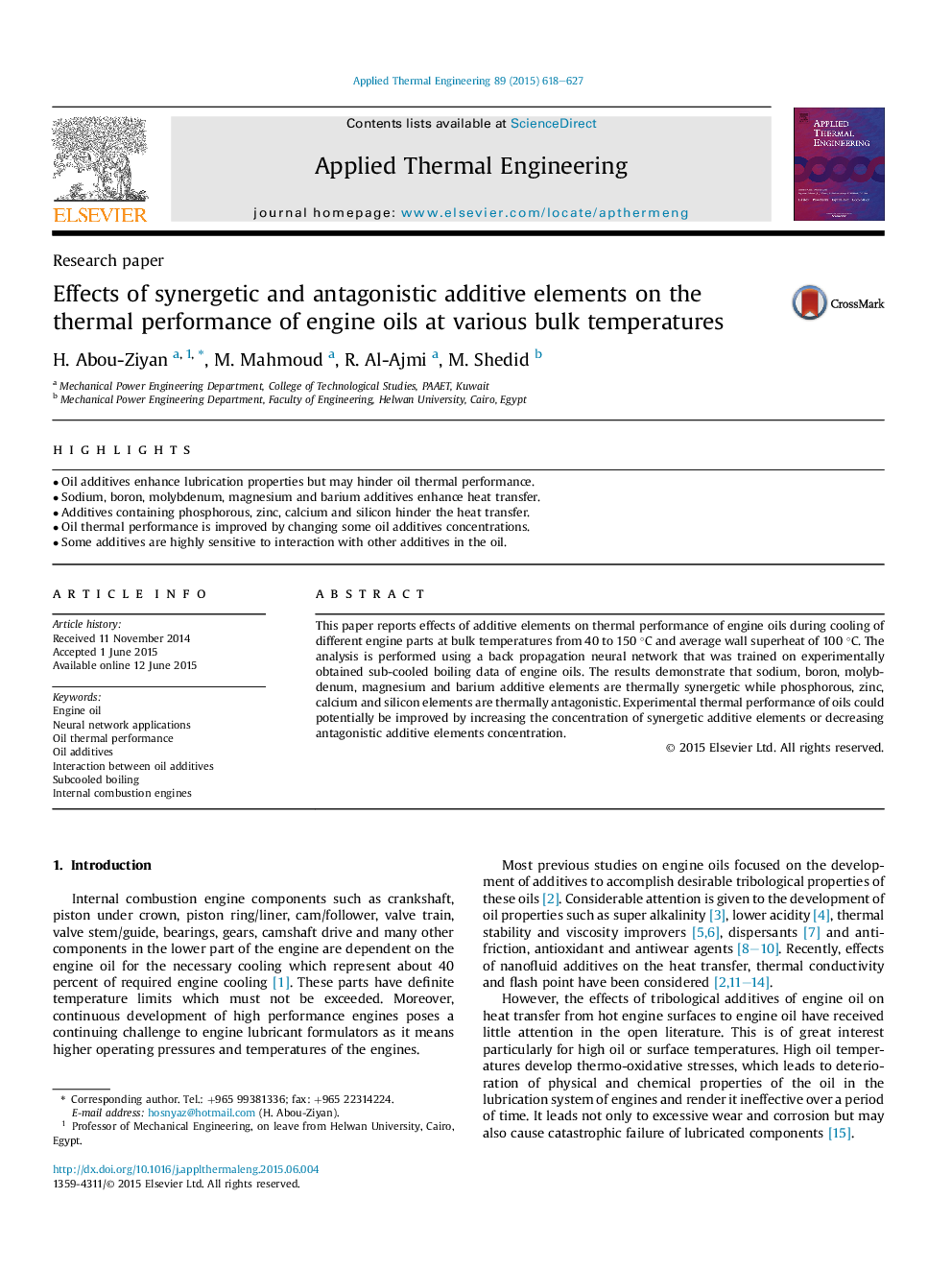| Article ID | Journal | Published Year | Pages | File Type |
|---|---|---|---|---|
| 645397 | Applied Thermal Engineering | 2015 | 10 Pages |
•Oil additives enhance lubrication properties but may hinder oil thermal performance.•Sodium, boron, molybdenum, magnesium and barium additives enhance heat transfer.•Additives containing phosphorous, zinc, calcium and silicon hinder the heat transfer.•Oil thermal performance is improved by changing some oil additives concentrations.•Some additives are highly sensitive to interaction with other additives in the oil.
This paper reports effects of additive elements on thermal performance of engine oils during cooling of different engine parts at bulk temperatures from 40 to 150 °C and average wall superheat of 100 °C. The analysis is performed using a back propagation neural network that was trained on experimentally obtained sub-cooled boiling data of engine oils. The results demonstrate that sodium, boron, molybdenum, magnesium and barium additive elements are thermally synergetic while phosphorous, zinc, calcium and silicon elements are thermally antagonistic. Experimental thermal performance of oils could potentially be improved by increasing the concentration of synergetic additive elements or decreasing antagonistic additive elements concentration.
